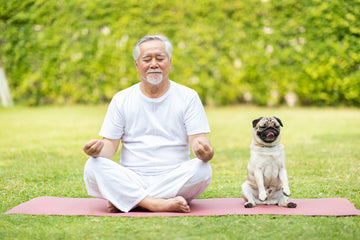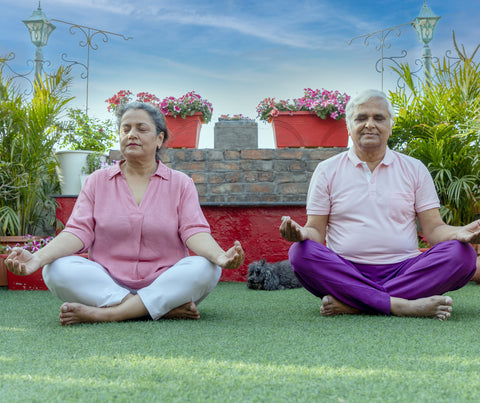
Buddha was asked: What have you gained from meditation?
He replied: Nothing. However, I have lost anger, anxiety, depression, insecurity, fear of old age and death.
Old age is sedentary and marked with a feeling of uselessness especially for those who had been very active in their younger working days. The stress of not doing anything or not being able to do anything makes them unhappy. In absence of the pressing needs of caring for children or work routine or a career in the forefront, one’s mind may quickly drift to the past and many questions may disturb his or her mind -
Did I do a good job as a parent?
Should I have worked longer?
Why didn’t I travel more?
What if my money doesn’t last?
What if my grandkids never visit?
As we age, we worry about our physical health. But we forget to focus on peace of mind and happiness which are imperatives for maintaining good health.
Stress doesn’t decrease with age. It just changes its form. People often wonder if there is a solution to the unending stress at all. Can anything be done to help calm the mind?
The answer is Yes!
And the solution is simple MEDITATION

Meditation has been found to promote good health and has a calming effect on the mind that helps one become positive. Meditation in the elderly can especially offer health benefits.
Several benefits of meditation that can be seen in the elderly include-
- Boosting memory and mental alertness.
- Decrease in blood pressure.
- Relief from digestive problems and symptoms.
- Deep breathing during meditation can help blood and oxygen circulation.
- Regulated breathing increases oxygen intake, which can boost the immune system.
- Meditation stimulates the areas of the brain responsible for feeling good and happy.
- Meditation can reduce stress, anxiety arising from chronic illness, disability, or a death in the family or of a loved one.
The first question then arises is HOW TO HELP OLDER PEOPLE MEDITATE?
Here are a few suggestions:




